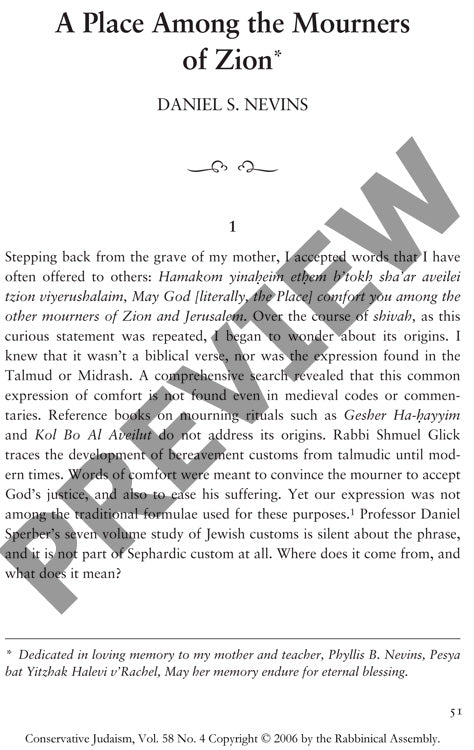A Place Among the Mourners of Zion
Couldn't load pickup availability
The familiar Jewish expression of consolation, "May God comfort you among the other mourners of Zion and Jerusalem," emerged as a medieval Ashkenazi innovation rather than an ancient tradition, solving a profound theological dilemma in Jewish mourning practices. After the Temple's destruction rendered the original comfort formula "May the One who dwells in this house comfort you" problematic for synagogue use, Jewish communities needed new language to console the bereaved. Through historical-textual analysis of biblical, talmudic, medieval, and modern rabbinic sources, particularly the fifteenth-century Sefer Maharil, this research traces the evolution of mourning customs from Temple-era practices to German-Jewish medieval traditions. The phrase's multiple interpretive dimensions reveal sophisticated theological responses to loss: the divine name "HaMakom" (the Place) suggests God's accessible presence during grief, while the concept of comfort implies both psychological and spiritual transformation. By inviting mourners to join the "mourners of Zion," the expression transcends individual bereavement, connecting personal loss to communal solidarity, Jewish historical memory, and messianic hope. The formula thus operates simultaneously as practical consolation and as a theological bridge between individual grief and collective Jewish experience.

More Information
-
Physical Description
-
Publication Information
Published 2006
ISBN
-
Publication Credits
Daniel Nevins

